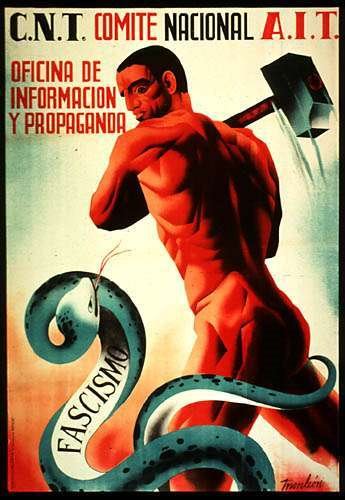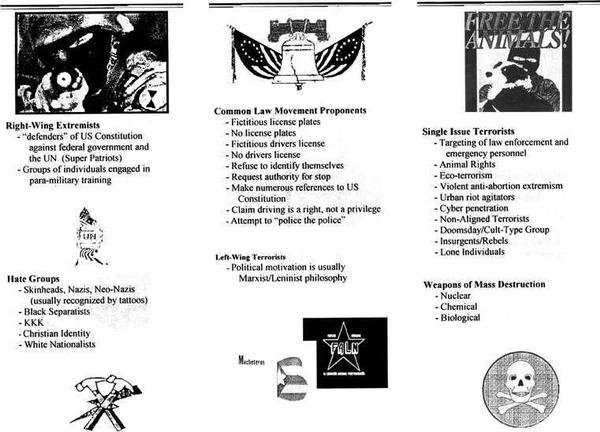e martë, 10 korrik 2007
RON PAUL BUZZ BUILDS: WASHINGTON TIMES
From WashingtonTimes.com
Article published Jul 10, 2007
Buzz builds for longshot Ron Paul
July 10, 2007
By Ralph Z. Hallow and Christina Bellantoni - Aides helping Texas Rep. Ron Paul with his longshot run for the Republican presidential nomination never thought they'd need more than the corner of a one-bedroom apartment.
They were wrong — and have outgrown their second headquarters, a 348-square foot office. Mr. Paul has more campaign cash available than former Republican front-runner Sen. John McCain of Arizona, Federal Election Commission records show, and the antiwar conservative has become an Internet sensation.
Though political pros say Mr. Paul's chances of moving into the White House are somewhere between slim and none, some expect him to have an impact on the 2008 Republican campaign.
"I watched the Republican presidential debates with neighbors, and two of the five people in the room said, ‘Who is that guy? I really like him,'" said Republican media consultant Tom Edmonds. "My gut tells me he's a sleeper and will indeed have an impact on the Republican race."
The Texas obstetrician — whose habit of opposing measures he deems unconstitutional won him the sobriquet "Dr. No" — is admired as a man of principle by many conservative leaders and has already won attention from voters across the land, including Democrats.
Iowan Alex Gabis, for example, attended an event for Sen. Barack Obama, Illinois Democrat, in the Fairfield town square last week, but another candidate was on his mind.
"There is a Republican I like — he's from Texas," volunteered Mr. Gabis. "I don't look at the label. I listen to what he says. I think his name is Ron Paul. I like him. I'd vote for him."
Des Moines resident Rod Shutt likes Mr. Paul for his "secure our borders now" position on immigration and said young people "like what they hear him say."
Mr. Paul, who raised most of his campaign dollars in the past quarter on the Internet and has $2.4 million cash on hand, wowed young voters across the country last month when he appeared on Comedy Central's "Colbert Report."
When host Stephen Colbert introduced Mr. Paul as having voted against the Patriot Act and the Iraq war, the liberal audience went wild with cheers. Mr. Colbert asked, "Are you a Republican or are you not a Republican?" Mr. Paul responded: "You're confused because I'm a constitutionalist. ... It's not that unusual to put those together if you believe in the rule of law, and you believe in the American tradition, and believe in limited government and you believe in liberty."
Mr. Paul was one of six House Republicans to vote against the Iraq war in 2002.
Commentator Patrick J. Buchanan says Mr. Paul's impact will depend on the size of the vote he attracts.
"If he starts running up 15 percent or 20 percent of the vote in Republican primaries, it says: The GOP is headed in the wrong direction, secure the border, get out of Iraq, come home, America," Mr. Buchanan told The Washington Times.
Influencing the Republican stance on major issues is the most likely outcome of the Paul candidacy.
"While I am very skeptical that he will win the nomination, historically challengers' biggest impact has been in shaping the debate — forcing the more popular candidates to address issues they might like to gloss over," said Merrill Matthews, resident scholar at the Institute for Policy Innovation (IPI) in Dallas. "I suspect Paul's principled opposition to massive government spending and the war could reach out to two different GOP groups — one large, one not so large — with the message: 'You are not alone.'"
Mr. Matthews sees a twofold impact for Mr. Paul: "His libertarian bent makes him the most principled of the Republican candidates. The large segment of the conservative base shares his rebellion against the GOP's willingness to become part of Washington's big-spending establishment. And as the only antiwar Republican candidate, he may provide a safe harbor to conservatives who are increasingly growing dissatisfied with the war."
Sympathetic conservatives say most of the Republican establishment just wishes Mr. Paul would get lost.
"The Republicans have made a serious mistake in making it difficult for Ron Paul to participate in the debates," said Paul M. Weyrich, founder of the Free Congress Foundation, a conservative policy organization. "Do all candidates have to be in lockstep? It may be that some conservatives have now forgotten, but Paul actually represents the authentic views on foreign policy of the late Sen. Robert A. Taft of Ohio, who articulated these views prior to the 1952 Republican convention."
Still, even some admirers are skeptics.
"Certainly there is a case to be made for a GOP protest vote in favor of Ron Paul,” said Jameson Campaigne Jr., an Illinois-based director of the American Conservative Union. “But I don't think small-‘c" conservative voters dare waste a vote on such a thing — unless the three front-runners in January are all discredited — Mitt Romney, Rudy Giuliani, and Fred Thompson. And while I greatly admire Ron Paul's strict constitutionalism, his campaign lacks the creativity to solicit a 'send them a message' protest vote."
Mr. Buchanan thinks the Texan is in it for the duration.
"If he stays in the race he will have a solid, hard-core but small following the whole way through the nomination contest," the former Nixon and Reagan White House aide said. "He has the money to go the distance because he harbors his resources."
As for the tiny office, Paul campaign chairman Kent Snyder told supporters recently they'd outgrown it. The campaign will expand to the second floor of a "modest" building in Arlington near the Metro rail line.
"Large windows will be perfect for a 'Ron Paul 2008' banner," Mr. Snyder said. “But most importantly, the new office will give us the space to build a national campaign.”
# Miss Bellantoni reported from Iowa; Mr. Hallow from Washington.
Abonohu te:
Posto komente (Atom)
Arkivi i blogut
-
▼
2007
(196)
- ► 07/29 - 08/05 (20)
- ► 07/22 - 07/29 (37)
- ► 07/15 - 07/22 (56)
-
▼
07/08 - 07/15
(33)
- MARXISM UNMASKED: FROM DELUSION TO DESTRUCTION
- THE ROOSEVELT NOBODY KNOWS: HOW GEORGE W. BUSH IS ...
- OUTRIGHT LIBERTARIANS (video interview)
- C-NET: WHY THE FCC SHOULD DIE
- SPIN: SURREAL EXPOSE OF MEDIA-CONSTRUCTED REALITY
- SUVs ON JUPITER? (warming trend a solar-system phe...
- ATTORNEY ACQUITTED FOR NOT FILING INCOME TAX RETURNS
- SOMEBODY'S WATCHING YOU (COP WATCH L.A.)
- SPIRALING US FEDERAL DEBT TRIGGERS DECLINE OF DOLLAR
- CINDY SHEEHAN TALKS ABOUT MARTIAL LAW, DEMS AND RO...
- JEROME CORSI ON THE NORTH AMERICAN UNION
- GUESS WHO IS COMING TO MOUNTAIN VIEW, CALIFORNIA
- RON PAUL VS. FDA: YOUR HEALTH FREEDOM IS UNDER ATT...
- AIPAC: THE ISRAEL LOBBY IN AMERICA // NEOCONS AND ...
- BIG PHARMA VS. FDA: WHO IS WORSE?
- SANJAY GUPTA RIPS MICHAEL MOORE A NEW ONE
- THE REVOLUTION *WILL* BE TELEVISED!
- RON PAUL BUZZ BUILDS: WASHINGTON TIMES
- JAIN/VEDIC MATHEMATICS
- MIND DE-PROGRAMMING VIDEO JUKEBOX
- CIA'S BOURNE IDENTITY PLOT // MK-ULTRA, LSD, MIND ...
- NET NEUTRALITY // INTERNET RADIO
- STOP "THE HOLT BILL": SAVE OUR ELECTIONS!
- WHAT IS WRONG WITH THE "INGREDIENTS" IN YOUR FOOD?
- THE FUTURE OF FOOD // PANACEA OR POISON?
- OWNING THE WEATHER // AEROSOL CRIMES
- THE SECRET GOVERNMENT: CONSTITUTION IN CRISIS w/ B...
- ISRAEL AND PALESTINE // END TIMES
- ELDERLY WOMAN ARRESTED FOR NOT WATERING HER LAWN
- TAX THE AIR YOU BREATHE?
- HOW TO SURVIVE MARTIAL LAW
- CENTRAL BANKS SETTING US UP FOR ANOTHER GREAT DEPR...
- THE DRUGGING OF OUR CHILDREN
- ► 07/01 - 07/08 (9)
- ► 06/24 - 07/01 (7)
- ► 06/17 - 06/24 (15)
- ► 06/10 - 06/17 (19)




Nuk ka komente:
Posto një koment